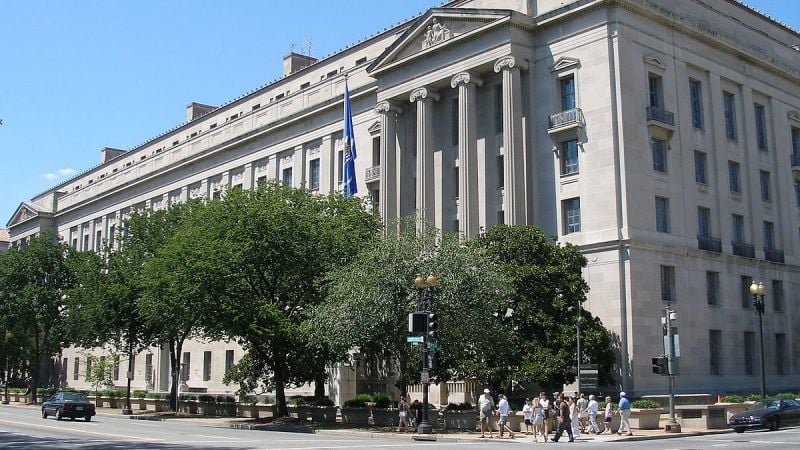DOJ Subpoenas Top Carriers in Antitrust Investigation

On Wednesday, sources at the FBI and five leading container lines confirmed that the Department of Justice has subpoenaed top carrier executives in connection with an antitrust investigation. The investigators served the subpoenas at a biannual meeting of the International Council of Containership Operators, known as the Box Club, which was held in San Francisco last week. The carriers said that the DOJ’s requests for testimony do not allege wrongdoing.
The news of the latest investigation comes after a long period of overcapacity and price pressure, and carriers have worked hard to gain economies of scale through alliances and M&A activity. The U.S. Federal Maritime Commission (FMC) has broadly approved the latest alliance agreements – the OCEAN Alliance and THE Alliance – despite the concerns of the Department of Justice (DOJ), which has often expressed reservations about anticompetitive behavior in the shipping industry.
Ocean carriers have a limited ability to cooperate on pricing under the U.S. Ocean Shipping Reform Act of 1998. They are allowed to discuss rates and set voluntary rate guidelines, but cannot set up firm rate structures as in the former "conference" system. However, “the [DOJ Antitrust Department] has long taken the position that the general antitrust exemption for international ocean shipping carrier agreements is no longer justified," wrote acting assistant attorney general Renata Hesse in an advisory letter to the FMC last year. "The ocean shipping industry exhibits no extraordinary characteristics that warrant departure from competition policy. Price fixing and other anticompetitive practices by the industry over the years have imposed substantial costs on our economy." Hesse called on FMC to forbid the creation of the OCEAN Alliance, or to narrowly tailor the agreement to maintain competition.
Antitrust investigations are common in international shipping, where carriers face intense competitive pressure and have little control over pricing on their own. Sydbank analyst Morten Imsgard told Reuters that these inquiries have become "almost everyday life" in the industry, and that they carry a serious risk of fines and stricter rules. "The industry needs co-operation and alliances. So, if a tightening of the possibilities to form partnerships across the industry makes it harder to consolidate, it will be more difficult to get a more profitable industry," he said.
Just last year, regulators in the E.U. reached a settlement with Maersk Lines, MSC, CMA CGM, COSCO, MOL and nine others that required them to end certain pricing methods – notably the common practice of publishing General Rate Increases three to five weeks in advance, which prosecutors viewed as a means of colluding with competitors. Separately, Maersk Line and Evergreen sought a settlement with the Russian Federal Anti-Monopoly Service (FAS) in December over charges that Maersk, CMA CGM, OOCL, Evergreen and HMM had colluded to impose surcharges on routes between Russia and Asia. The lines lost the case and lost again on appeal at the Moscow Arbitration Court; as of December, they continued to maintain that the Russia-Asia rates were set by supply and demand.
In early 2016, China's Ministry of Transport fined Maersk, COSCO, ZIM, Hanjin and four others a combined $160,000 for violating "international maritime freight rate filing requirements and tariff filing obligations." In 2015, Chinese regulators fined 21 container carriers – including China Shipping Group, Evergreen, Maersk Line, OOCL and Yang Ming – over charges that they had published false pricing information to create "destructive competition." The fines were nominal at only $14,500 per carrier.
While container carriers have often made headlines for price-fixing allegations, the most prominent shipping antitrust investigations in recent years have been in the ro/ro car carrier market. Since 2011, authorities in China, the United States, Brazil and Japan have investigated and/or fined Eukor, Wallenius Wilhelmsen, MOL, "K" Line, CSAV, Eastern Car Liner, NYK, CSAV, Autotrans, World Logistics Service, Hoegh Autoliners, Toyofuji Shipping and Nissan Motor Car Carrier for alleged bid-rigging and price-fixing. Subsidiaries of "K" Line, NYK, Wallenius Wilhelmsen and CSAV have pled guilty to related charges in a U.S. Justice Department investigation, and ten car carriers face a class action lawsuit from American shippers seeking to recover damages.
